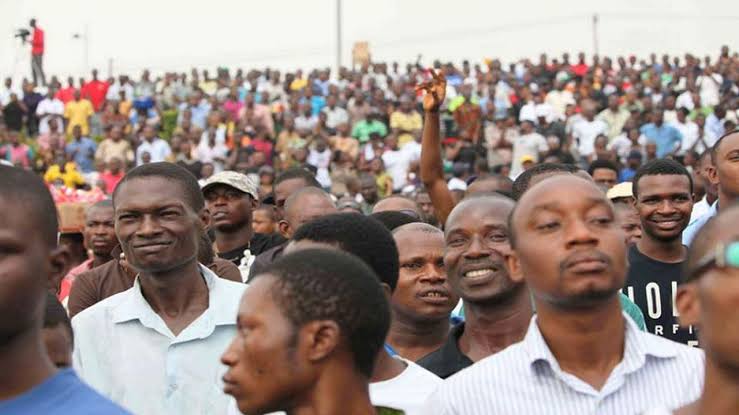By Raphael Kolawole, Southwest, Nigeria
In the hyper-connected Nigeria of today, where a swipe replaces a newspaper and trending hashtags continue to shape public opinion, information, of course, travels faster than light, yet genuine awareness, depth of understanding and critical analysis evidently have no roots.
A typical Nigerian youth may be the first to repost a viral clip, share a trending meme, or join a buzzing online challenge, but please do well by asking the same young person about the latest government policy, economic reform, or local governance issue, the silence you can be assured would be deafening.
They scroll, they share, they stream, but when it comes to understanding how their country works, many Nigerian youths are caught in an information mirage: surrounded by news, yet starved of knowledge.
This irony lies at the heart of Nigeria’s modern information crisis. We are swimming in data, yet starving for understanding. Connectivity is up, but comprehension is down. In an age where smartphones have replaced newspapers, and TikTok trends overshadow public policy, the illusion of being informed has quietly taken root.
A time it was when staying informed was a deliberate ritual, morning radio updates, the afternoon newspaper, the evening television bulletin were things never to miss. The previous generation, with all its limited access, was arguably more civically conscious. They tuned in to NTA news, listened to FRCN bulletins, and read Daily Times editorials not because it was fashionable, but because it was necessary. These routines enhanced a shared sense of civic awareness.
Today, information is consumed in fragments, a headline screenshot, a 10-second reel, or an unverified post shared in haste and the abundance of information has created complacency, a belief that being online equals being aware.
A recent study among Nigerian university students revealed that although more than 95 per cent use their phones for news consumption, barely a quarter pay attention to political or national stories. The rest swim comfortably in the shallow waters of entertainment and celebrity updates.
This trend carries profound implications for Nigeria’s democratic future. When young citizens disengage from public discourse, they also disengage from accountability. Civic responsibility wanes when budgets, policies, and governance structures remain abstract concepts rather than lived realities. Corruption thrives where curiosity dies, and inefficiency endures where scrutiny fades.
The digital age has democratized access to information, but it has also democratized misinformation. Many young Nigerians mistake social media buzz for civic enlightenment. They scroll endlessly but rarely verify. They share passionately but seldom analyse. The result is an echo chamber of half-truths, where entertainment dominates and civic literacy declines.
Bridging this growing gap demands deliberate action. Young Nigerians must relearn the discipline of curiosity. Before forwarding a story, verify its source. Before forming an opinion, read beyond the headline. True awareness begins with intentional learning.
The media industry must reinvent how it communicates public interest stories. Civic information should be made relatable, mobile-friendly, and appealing without sacrificing depth. Storytelling formats short explainer videos, interactive podcasts, and infographics, can make national issues resonate with the digital generation.
Educational institutions must also intentionally institutionalize civic literacy beyond the classroom. Platforms like debate clubs, media literacy campaigns, and civic podcasts can encourage youths to view national conversations as integral to their identity, not as optional extras.
Also, government must do it first line responsibility of security, this time not just physical security but the psychological safety of the citizens who are rapidly been consumed in the warfare on the internet which has continued to damage them, infiltrating their agencies and adulterating their development. Government and non government organizations must see youth engagement not as merely an outreach but as partnership. Open forums, interactive policy briefings, and digital town halls can make governance participatory and inclusive.
Nigeria’s youth population is its greatest asset, but potential without awareness is a wasted gift. For this generation to truly shape the nation’s destiny, information must translate to insight, and connectivity must evolve into consciousness. Because in the end, nations are not built by those who scroll past reality, but by those who stay informed enough to change it
Raphael Kolawole is a third-year Mass Communication student of Bamidele Olumilua University and intern in the State Ministry of Information, Ado-Ekiti, Ekiti State in the Southwestern part of Nigeria
